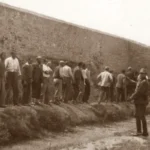Victoria is preparing for one of the most significant public transport reforms in decades, as the Allan government takes full control of the state’s multi-billion-dollar fare collection system.
The move, described by senior transport officials as transformative, could pave the way for simpler, cheaper and more innovative ticketing options across the network.
For the first time since trains and trams were privatised in the late 1990s, all fare revenue — or “farebox returns” — will flow directly to the state rather than to private operators. Under the overhaul, operators will instead be paid fixed fees and assessed on separate reliability metrics and performance penalties.
The shift comes in response to fluctuating passenger numbers since the COVID-19 pandemic, driven largely by the explosion in work-from-home arrangements. According to government sources, the new system will give the state unprecedented flexibility to redesign fare structures, especially once contactless payments for myki — including credit and debit card tap-on — launch next year.
Transport officials say the updated technology could unlock a range of innovative pricing models, such as discounted or free travel during quieter periods, or simplified short-distance fares. Infrastructure Victoria and public transport advocates have long argued that off-peak pricing would ease road congestion and reduce crowding on peak-hour services — and with a state election looming next year, fare reform is expected to become a politically charged issue.
The government has already announced several initiatives, including free weekend travel over summer to coincide with the opening of the Metro Tunnel, and free weekday travel for children and free weekend travel for seniors beginning next year.
Taking direct control of the farebox — valued at around $700 million per year, but close to $1 billion before the pandemic — also allows the government to dramatically reduce the state’s astonishing 1400 different fare types. These include an array of concession categories, zone structures and special passes that have complicated the $1.7 billion myki upgrade, which is running $137 million over budget and 18 months behind schedule.
One government source said the completion of the myki upgrade would “unlock capacity for a wider range of products” while allowing operators to focus on delivering a better passenger experience. Another source emphasised that reforming the “extraordinarily complicated” ticketing structure must prioritise affordability, not fare increases.
“A system this complex cannot be fixed unless the state takes full responsibility for farebox revenue,” the source said.
The major tram contract signed earlier this year transferred fare collection responsibilities from Yarra Trams to the state, and an upcoming metropolitan train contract will adopt a similar fixed-fee model. Under previous contracts, the government was required to compensate Metro Trains when fare revenue fell below guaranteed levels — a cost that has totalled hundreds of millions of dollars.
Infrastructure Victoria has provided strong evidence in favour of fare reform. Its research indicates that cheaper midday fares could remove 31 million car trips from Victorian roads each year and significantly ease crowding during peak hours. Additional modelling shows that under-used bus routes saw a 19 per cent increase in passengers for every dollar of fare discount applied.
“More public transport users, especially during off-peak periods, can help partially offset any loss of revenue from cheaper fares,” Infrastructure Victoria’s 30-year strategy states.
The Public Transport Users Association has pushed for weekly fare caps and short-distance fares, with spokesman Daniel Bowen saying such reforms would encourage passengers to switch to the new contactless myki system and boost overall public transport use.
At the 2022 state election, the opposition pledged to cap all public transport fares at $2 and cut V/Line fares by half. The government has since delivered on its own promise to cap V/Line fares at metropolitan levels, now set at $11 per day or $5.50 for concession cardholders.
With fare reform now firmly in government hands, Victoria appears poised for a major shake-up — one that could reshape how millions of people travel each year.












